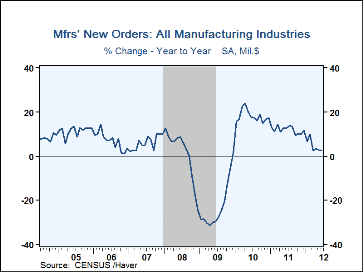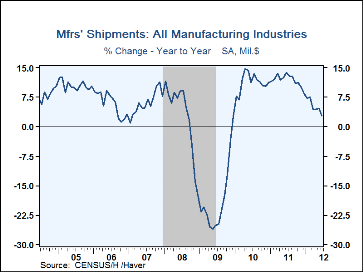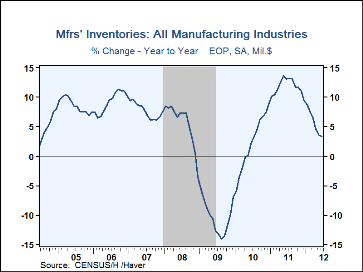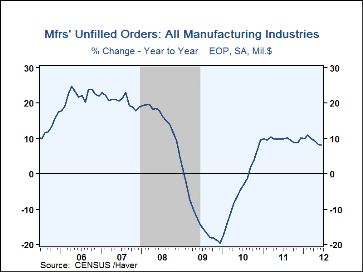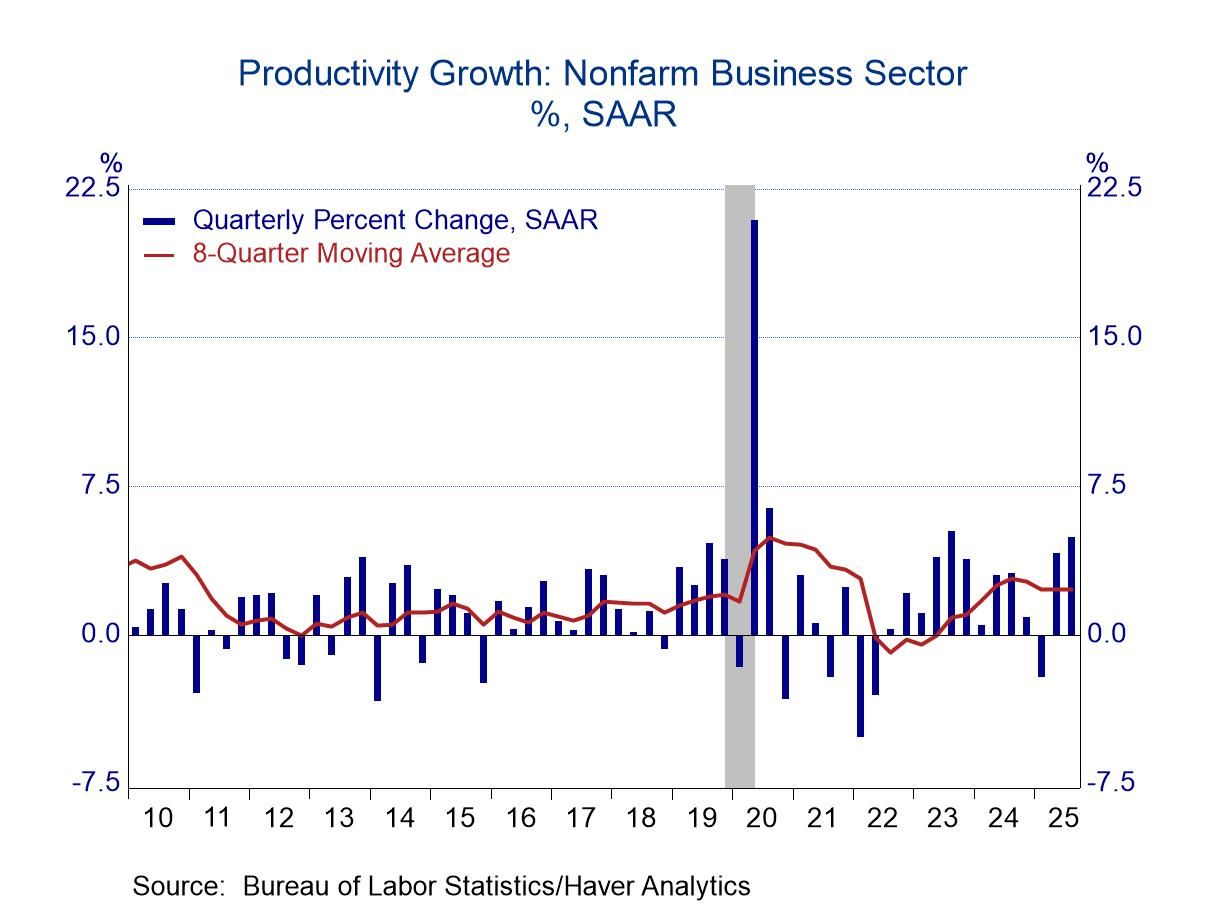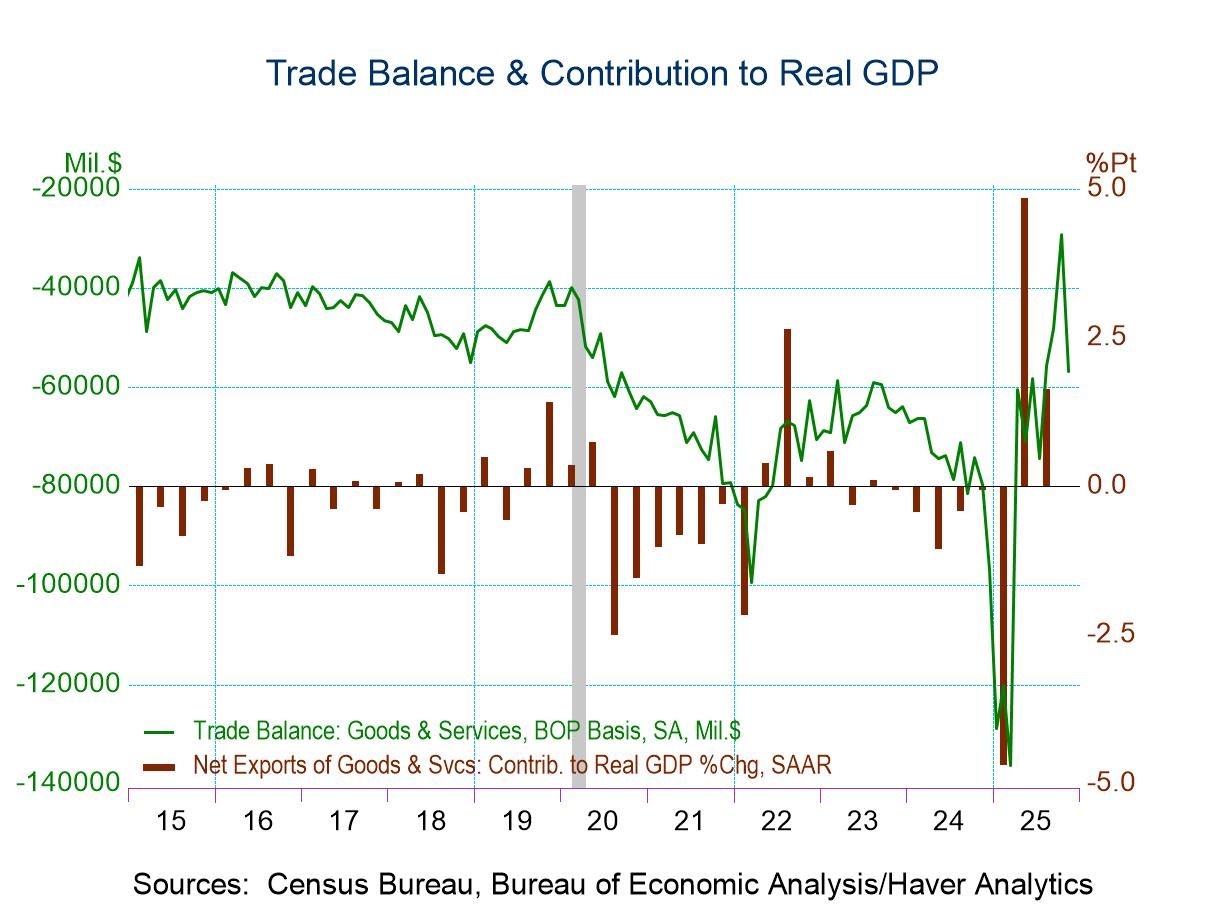 Global| Aug 02 2012
Global| Aug 02 2012U.S. Factory Orders Decline
by:Tom Moeller
|in:Economy in Brief
Summary
Orders in the manufacturing sector fell 0.5% in June and retraced their May increase. Expectations were for a 0.3% increase. Durable goods orders increased 1.3%, revised from last week's advance report of a 1.6% rise. Nondurable goods [...]
Orders in the manufacturing sector fell 0.5% in June and retraced their May increase. Expectations were for a 0.3% increase. Durable goods orders increased 1.3%, revised from last week's advance report of a 1.6% rise. Nondurable goods orders (which equal shipments) fell 2.0% (-1.7% y/y) led by a 2.9% drop (-2.4% y/y) in petroleum shipments. Shipments of textile products declined 1.2% (+2.2% y/y), basic chemicals shipments fell 2.1% (-5.4% y/y) and shipments of textile products fell 1.2% (+2.2% y/y).
Inventories in the factory sector ticked up 0.1% during June offsetting a 0.1% May slip. That lessened the y/y rate of inventory accumulation to 3.4%, down from its 13.6% rate one year ago. Lower rates of inventory accumulation occurred across industries. Unfilled orders rose 0.3% (8.1% y/y) following three consecutive unchanged readings.
The factory sector figures are available in Haver's USECON database. The expectation figure is in AS1REPNA.
| Factory Sector- NAICS Classification | Jun | May | Apr | Y/Y | 2011 | 2010 | 2009 |
|---|---|---|---|---|---|---|---|
| New Orders | -0.5 | 0.5 | -0.7 | 2.5 | 11.8 | 18.0 | -23.1 |
| Shipments | -1.1 | 0.3 | -0.2 | 2.9 | 11.8 | 11.2 | -18.8 |
| Inventories | 0.1 | -0.1 | -0.2 | 3.4 | 9.4 | 8.8 | -6.8 |
| Unfilled Orders | 0.3 | -0.0 | -0.1 | 8.1 | 10.3 | 9.6 | -19.5 |
Tom Moeller
AuthorMore in Author Profile »Prior to joining Haver Analytics in 2000, Mr. Moeller worked as the Economist at Chancellor Capital Management from 1985 to 1999. There, he developed comprehensive economic forecasts and interpreted economic data for equity and fixed income portfolio managers. Also at Chancellor, Mr. Moeller worked as an equity analyst and was responsible for researching and rating companies in the economically sensitive automobile and housing industries for investment in Chancellor’s equity portfolio. Prior to joining Chancellor, Mr. Moeller was an Economist at Citibank from 1979 to 1984. He also analyzed pricing behavior in the metals industry for the Council on Wage and Price Stability in Washington, D.C. In 1999, Mr. Moeller received the award for most accurate forecast from the Forecasters' Club of New York. From 1990 to 1992 he was President of the New York Association for Business Economists. Mr. Moeller earned an M.B.A. in Finance from Fordham University, where he graduated in 1987. He holds a Bachelor of Arts in Economics from George Washington University.


